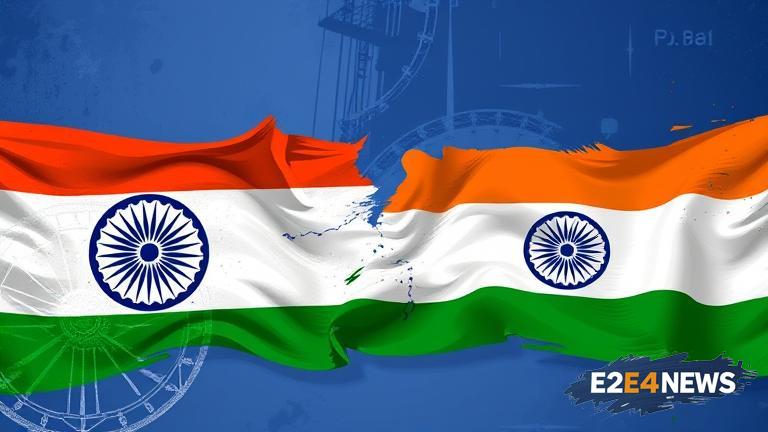The United States has imposed tariffs on Indian goods, worth approximately $6.3 billion, in response to India’s tariffs on American products. This move has sparked trade tensions between the two nations, with India’s Prime Minister Narendra Modi expressing concerns over the US decision. The tariffs, which came into effect on July 13, will affect a range of Indian goods, including textiles, chemicals, and metals. The US has also threatened to impose further tariffs on Indian goods if the country does not remove its tariffs on American products. India has responded by imposing its own tariffs on US goods, worth approximately $1.4 billion. The trade tensions between the two nations have been escalating over the past few months, with the US accusing India of unfair trade practices. The US has also been critical of India’s decision to impose tariffs on American products, including Harley-Davidson motorcycles and bourbon whiskey. India has argued that the tariffs are necessary to protect its domestic industries and to reduce its trade deficit with the US. The trade tensions have sparked concerns among businesses and investors, with many warning that the tariffs could have a negative impact on the global economy. The Indian government has said that it will continue to engage with the US to resolve the trade tensions, but has also made it clear that it will not back down on its decision to impose tariffs. The US has also been critical of India’s decision to impose data localization requirements on foreign companies, including Google and Facebook. The requirements, which came into effect in October 2018, require foreign companies to store data on Indian users within the country. The US has argued that the requirements are unfair and will harm American businesses. The trade tensions between the two nations have also sparked concerns among farmers, with many warning that the tariffs could have a negative impact on agricultural exports. The Indian government has said that it will provide support to farmers who are affected by the tariffs, but has also made it clear that it will not compromise on its decision to impose tariffs. The trade tensions have also sparked a debate over the role of trade in the global economy, with many arguing that tariffs are a necessary tool to protect domestic industries. Others have argued that tariffs are a form of protectionism and will harm the global economy. The Indian government has said that it will continue to engage with the US to resolve the trade tensions, but has also made it clear that it will not back down on its decision to impose tariffs. The trade tensions between the two nations are likely to continue, with many warning that the tariffs could have a negative impact on the global economy.
